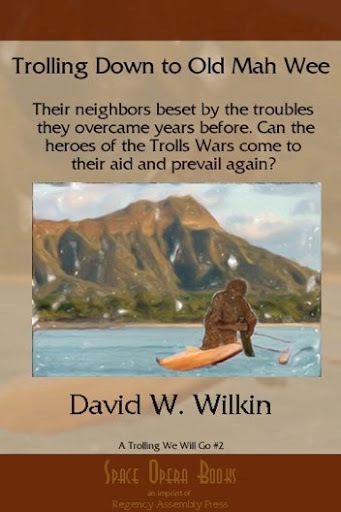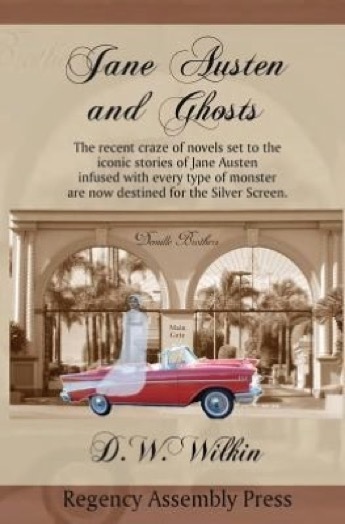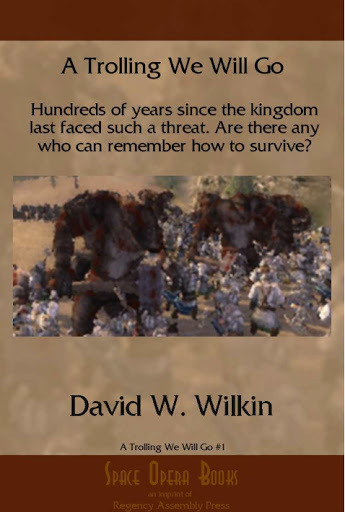D.W. Wilkin's Blog, page 8
December 17, 2016
Regency Personalities Series-William Henry Whitbread
Regency Personalities Series
In my attempts to provide us with the details of the Regency (I include those who were born before 1811 and who died after 1795), today I continue with one of the many period notables.
William Henry Whitbread
4 January 1795 – 21 June 1867
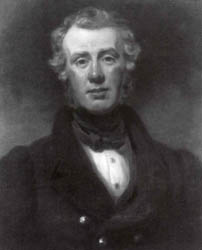
William Henry Whitbread
William Henry Whitbread was an English Whig and Liberal Party politician who sat in the House of Commons from 1818 to 1835.
Whitbread was the son of brewer Samuel Whitbread and his wife Lady Elizabeth Grey, the eldest daughter of Charles Grey, 1st Earl Grey. He was educated at Eton College and Trinity College, Cambridge. He was awarded a M.A. in 1816 and became a partner with his brother Samuel Charles Whitbread in the brewing firm.
In 1818 Whitbread was elected as a Member of Parliament (MP) for Bedford and held the seat until 1835. He was a J.P. and Deputy Lieutenant for Bedfordshire and became High Sheriff of Bedfordshire in 1837.
Whitbread lived at Southill, Bedfordshire and died at the age of 72.
Whitbread married, Harriet Sneyd, daughter. of the Rev. Wettenhall Sneyd, of the Isle of Wight on 5 November 1845. They had no family.


Fantasy from Space Opera Books, Trolling’s Pass and Present
Trolling’s Pass and Present
Not only do I write Regency and Romance, but I also have delved into Fantasy. The Trolling series, (the first three are in print) is the story of a man, Humphrey.
We meet him as he has left youth and become a man with a man’s responsibilities. We follow him in a series of stories that encompass the stages of life.
We see him when he starts his family, when he has older sons and the father son dynamic is tested. We see him when his children begin to marry and have children, and at the end of his life when those he has loved, and those who were his friends proceed him over the threshold into death.
All this while he serves a kingdom troubled by monsters. Troubles that he and his friends will learn to deal with and rectify.
It is now available in a variety of formats. For $2.99 you can get this fantasy adventure.
Barnes and Noble for your Nook
Years since their battles with the Trolls, even on foreign soil, the warriors of the Valley Kingdom of Torahn need something to keep their edge honed.
The economy too is beginning to fray a little without the great wars to support. The Leaders hit upon the idea of searching for a path to reach the east side of the continent.
The Elves swear that at one time their writings tell of such, the Dwarves swear such a pass across Teantellen is legendary. Teantellen though is filled with races man has never gotten along with well. Goblins, Dark Elves, Trolls, Giants and Dragons.
It has been years since the mountain tops exploded, and perhaps that has changed things enough that a way can be found to link the western lands with the eastern lands and increase trade, and prosperity for all. Even should they fail in their quest, as the history of man has shown to this point in time, the attempt will do much to spur the economy.
Tens of thousands of gold will be spent by the Council of Twenty-One to pay for such an expedition. Gold that those who are not so scrupulous might choose to pocket as they tried in the Troll Wars.
With such shenanigans taking place again, are the hopes of the previous generation, the leaders from the Troll Wars now in retirement, ready to be achieved? Is it time for Torahn, called the Valley Kingdom, but the only Kingdom without a King, to have a King once more?
Feedback
If you have any commentary, thoughts, ideas about the book (especially if you buy it, read it and like it
December 16, 2016
Regency Personalities Series-Sir William Clayton 4th Baronet
In my attempts to provide us with the details of the Regency (I include those who were born before 1811 and who died after 1795), today I continue with one of the many period notables.
Sir William Clayton 4th Baronet
16 April 1762 – 26 January 1834
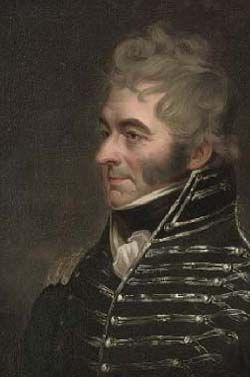
Sir William Clayton
Sir William Clayton was an English politician.
Clayton was the oldest surviving son of William Clayton (c. 1718–1783), who was the grand-nephew of Sir Robert Clayton, a wealthy banker and former Lord Mayor of London.
He was educated at Queen’s College, Oxford. In 1785, he married Mary East, the daughter of Sir William East, 1st Baronet, a former High Sheriff of Berkshire. They had 5 sons and 2 daughters.
In 1783, he was elected unopposed was a Member of Parliament (MP) for the rotten borough of Great Marlow, succeeding his father. He held the seat until he stood down at the general election in 1790.
In 1799 he inherited the baronetcy of his first cousin Sir Robert Clayton. He died aged 71 on 26 January 1834, and was succeeded in the baronetcy by his eldest son, William Robert, who became an MP from Great Marlow from 1832 to 1842.


RAP has The Shattered Mirror, A Regency Romance
The Shattered Mirror
For your enjoyment, one of the Regency Romances I published. It is available for sale and now at a reduced price of $3.99, and I hope that you will take the opportunity to order your copy.
Order for yourself or as a gift. It is now available in a variety of formats. For just a few dollars this Regency Romance can be yours for your eReaders or physically in Trade Paperback.
Barnes and Noble for your Nook
and in Trade Paperback
Bridget Halifax-Stokes was giddy with the excitement of her Season in London. Town had beckoned and her Season came on the heels of the end of the war against the tyrant. All the handsome men were returning heroes. What better year to come out?
Her father thought it all nonsense. Her mother believed that it would be the best showing of any of her daughters. More lords now available and the family’s luck that Bridget was just the perfect age.
All is fun and frivolity for Bridget until she literally crashes into Sir Patrick Hampton as he limps along the High Street. A man she knew once well from her childhood, now a stranger with dark and foreboding eyes. Eyes that had seen more than any man’s share of the war.
Feedback
If you have any commentary, thoughts, ideas about the book (especially if you buy it, read it and like it
December 15, 2016
Regency Personalities Series-John Genest
Regency Personalities Series
In my attempts to provide us with the details of the Regency (I include those who were born before 1811 and who died after 1795), today I continue with one of the many period notables.
John Genest
1764 – 15 December 1839
John Genest was the son of John Genest of Dunker’s Hill, Devon. He was educated at Westminster School, entered 9 May 1780 as a pensioner at Trinity College, Cambridge, and graduated B.A. 1784 and M.A. 1787. He took holy orders, and was for many years curate of a Lincolnshire village. Subsequently he became private chaplain to the Duke of Ancaster.
Compelled by ill-health to retire, he went to Bath, Somerset for the benefit of the waters. Here he appears to have remained until his death, which took place, after nine years of illness, at his residence in Henry Street, 15 December 1839. He was buried in St. James’s Church.
During his times in Bath he wrote Some Account of the English Stage from the Restoration in 1660 to 1830, Bath, 10 vols. 1832. It is accurate and well-researched.


Trolling Down to Old Mah Wee, another Fantasy
Trolling Down to Old Mah Wee
Not only do I write Regency and Romance, but I also have delved into Fantasy.
The Trolling series, (the first three are in print) is the story of a man, Humphrey. We meet him as he has left youth and become a man with a man’s responsibilities. We follow him in a series of stories that encompass the stages of life.
We see him when he starts his family, when he has older sons and the father son dynamic is tested. We see him when his children begin to marry and have children, and at the end of his life when those he has loved, and those who were his friends proceed him over the threshold into death.
All this while he serves a kingdom troubled by monsters. Troubles that he and his friends will learn to deal with and rectify. It is now available in a variety of formats.
For $2.99 you can get this 2nd book in the fantasy adventure series of Humphrey and Gwendolyn.
Barnes and Noble for your Nook
When the neighboring kingdom of Mah Wee begins to experience the same problems that beset Torahn some years before, they urgently request the aid of the experts in containing a new Troll infestation. But eradicating Trolls is not as easy as exterminating a few rats or mice.
Trolls are bigger than men, they are stronger than men, and then are meaner than men. Humphrey Cutter and his band of mismatched warriors must once again rise to the occasion, but can they without the aid of expertise of Gwendolyn and her particular skills?
Mah Wee, an ancient kingdom, with a monarch more steeped in the rights of being a king rather than the obligations and duties that a king should be. Here Humphrey and his crew finds that they have more than Trolls to overcome if they are to save Mah Wee from the same or nearly similar problems that they faced before in Torahn.
But, as Humphrey knows, nothing can truly be accomplished if the lovely Gwendolyn is not able to lend her aid as well.
Feedback
If you have any commentary, thoughts, ideas about the book (especially if you buy it, read it and like it
December 14, 2016
Regency Personalities Series-General Sir William John Codrington
Regency Personalities Series
In my attempts to provide us with the details of the Regency (I include those who were born before 1811 and who died after 1795), today I continue with one of the many period notables.
General Sir William John Codrington
26 November 1804 – 6 August 1884
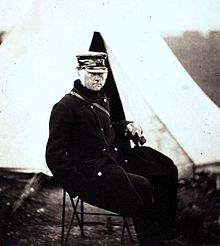
William John Codrington
General Sir William John Codrington was the second son of Admiral Sir Edward Codrington, the victor of the Battle of Navarino. He was born on 26 November 1804. He entered the army as an ensign in the Coldstream Guards in 1821, and was promoted lieutenant in 1823, lieutenant and captain in 1826, captain and lieutenant colonel in 1836, and colonel in 1846, and throughout that period had never been on active service.
He found himself at Varna in the summer of 1854, when the English and French armies were encamped there, either as a mere visitor and colonel unattached, as Kinglake says, or in command of the battalion of Coldstream guards, when his promotion to the rank of major general was gazetted on 20 June 1854. As a general officer on the spot, he was requested by Lord Raglan to take command of the 1st Brigade of the Light Division, consisting of the 7th, 23rd, and 33rd regiments, which had become vacant owing to the promotion of Brigadier General Richard Airey to be quartermaster-general in the place of Lord de Ros.
As a general commanding a brigade and absolutely without experience of war, Codrington went into action in his first battle, the Battle of Alma. The light division got too far ahead and fell into confusion in crossing the Alma, and Codrington, seeing that his men could not lie still and be slaughtered by the Russian guns, boldly charged the great redoubt and carried it. But he had soon to fall back before the weight of the Russian column, and ran a risk of being utterly crushed, until the Russian column was broken by the charge of the highland brigade under Sir Colin Campbell. His bravery in this battle showed that Codrington deserved his command, and he again proved his courage at the battle of Inkerman, where he occupied the Victoria Ridge throughout the day, and perpetually sent off all the troops who came up to his help to assist in the real battle on the Inkerman tusk. Sir George Brown, who commanded the light division, was severely wounded in this battle, and after it Codrington assumed the command of the whole division as senior brigadier.
Throughout the winter of 1854–55 he remained in command of the division, and on 5 July 1855 he received the reward of his constancy by being made a Knight Commander of the Order of the Bath. Codrington arranged with General Edwin Markham, commanding the 2nd Division, the attack on the Redan of 8 September, but blame seems to have been showered more freely on Sir James Simpson, who commanded in chief since Lord Raglan’s death, than on the actual contrivers of that fatal attack. On 11 November 1855, for some reason that has never been properly explained, Codrington succeeded Sir James Simpson as Commander-in-Chief instead of Sir Colin Campbell, who had much better claims to the succession, and he commanded the force occupying Sebastopol, for there was no more fighting, until the final evacuation of the Crimea on 12 July 1856.
On his return to England, Codrington was promoted lieutenant general, appointed colonel of the 54th Foot, and in 1857 was elected MP for Greenwich, in the liberal interest. From 1859 to 1865, he was Governor of Gibraltar. He was made a Knight Grand Cross of the Order of the Bath in the latter year, and was promoted general in 1863. In 1860, he was transferred to the colonelcy of the 23rd Foot, and in 1875 to that of the Coldstream guards, the regiment in which he had risen.
He remained an active politician to the end of his life, and contested Westminster in 1874, and Lewes in 1880, in the liberal interest. He saw no active service except in 1854 and 1855, and yet he was twice offered the rank of field marshal, which he refused. He wore a medal and four clasps for the Crimea, and was a Commander of the Legion of Honour, a Knight Grand Cross of the Military Order of Savoy, and a member of the first class of Order of the Medjidie.
Codrington died on 6 August 1884, in his eightieth year, at Danmore Cottage, Heckfield, Winchfield in Hampshire.
In politics, Codrington was a Liberal supporter of Viscount Palmerston. He particularly liked his leader’s foreign policy. He was in favour of “progressive reform” and “civil and religious liberty”, but did not support the secret ballot.
He was Member of Parliament for Greenwich between a by-election in February 1857 and 1859. He contested Westminster in 1874 and Lewes in 1880.
In 1868 he stood for the seat of Greenwich, replacing fellow Liberal Sir William Bright who had declined to stand. When William Gladstone failed to take the seat of Lancashire, Codrington himself stood aside to allow him to represent Greenwich. [Kentish Mercury, September 12, 1868.]
In 1836 he married Mary Ames and together they went on to have two sons and two daughters. His son, Alfred, also joined the Army, commanding a Home Service army during the First World War; his daughter Mary married William Earle, an Army officer killed commanding the forces the Battle of Kirbekan. The other two children died young.


Jane Austen Fans Rejoice, Jane is BACKKKK… Jane Austen and Ghosts
Special Sale Price!
Jane Austen and Ghosts.
Not only do I write Regency and Romance, but this can take a humorous turn. Some years back, I am sure readers of this blog will be aware that some writers began to take great liberty with Jane Austen and her works. Pride and Prejudice being liberally rewritten with the inclusion of zombies.
Then other books appeared with sea monsters, and werewolves and vampires. President Lincoln has even made it to the big screen where he is intent on sending foul creatures to hell. It occurred to me, even before I read any of this literature, that Jane would probably not appreciate what had been done to her classic piece.
That the tales and her life have become visual spectacles that we enjoy she might not like either, but is perhaps resigned to. That zombies, ghosts and vampires are now used to follow her own plot lines would I think, have her turning over in her grave. Jane Austen and Ghosts is my take on that.
It is now available in a variety of formats. For a limited time it has been reduced to $2.99 for your eReaders and $8.99 for paperback you can get this Jane Austen adventure.
Barnes and Noble for your Nook
and in Paperback
In the world of moviemaking, nothing is as golden as rebooting a classic tale that has made fortunes every time before when it has been adapted for the silver screen.
Certainly any work by Jane Austen made into a movie will not only be bankable, but also considered a work of art. That is of course until the current wave of adaptations that unite her classic stories with all the elements of the afterlife is attempted to be created.
That these have found success in the marketplace amongst booklovers may not be quite understood by those who make movies. But that they are a success is understood and a reason to make them into movies.
All that being said, perhaps it would also be fair to say that the very proper Jane, were she present to have anything to say about it, would not be pleased. Of course she has been away from this Earth for nearly 200 hundred years.
But does that mean were she upset enough, she wouldn’t come back?
Feedback
If you have any commentary, thoughts, ideas about the book (especially if you buy it, read it and like it
December 13, 2016
Regency Personalities Series-James Watson (Radical)
Regency Personalities Series
In my attempts to provide us with the details of the Regency (I include those who were born before 1811 and who died after 1795), today I continue with one of the many period notables.
James Watson (Radical)
21 September 1799 – 29 November 1874
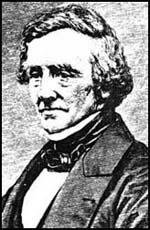
James Watson
James Watson was born at Malton, North Yorkshire. His father died when he was only a year old. His mother, who was a Sunday school teacher, taught him to read and write. Around the year of 1811, she returned to domestic service in the household of a clergyman, who had paid for James’s schooling and tuitions for a brief period. He had worked there as under-gardener, in the stables and as house-servant, and he read widely. From about 1817 Watson was with his mother in Leeds, where he became a warehouseman.
Watson was converted to freethought and radicalism by public readings from William Cobbett and Richard Carlile. He spread literature and helped with a subscription on behalf of Carlile. Carlile was sentenced in 1821 to three years’ imprisonment for blasphemy, and Watson went up to London in September 1822 to serve as a volunteer assistant in his Water Lane bookshop. In January 1823 Carlile’s wife, having completed her own term of imprisonment, took a new shop at 201 Strand, and Watson moved there as a salesman; salesman after salesman was arrested. In February 1823 Watson was charged with selling a copy of Elihu Palmer’s Principles of Nature to a police agent, spoke in his own defence, and was sent to Coldbath Fields Prison for a year.
In prison he read David Hume, Edward Gibbon, and Johann Lorenz von Mosheim’s Ecclesiastical History, and developed his anti-Christian and republican opinions. In 1825 he trained as a compositor, and was employed in printing Carlile’s The Republican; and went into business on his own. He was in poverty at times, and in 1826 caught cholera. Recovering, he became an Owenite, and in 1828 he was storekeeper of the “First Co-operative Trading Association” in London, in Red Lion Square.
In 1831 Watson set up as a printer and publisher. He became a champion of the right to free expression of opinion. Julian Hibbert, an admirer, died in January 1834 and left him a legacy, with which Watson enlarged his printing plant. He started by printing the life and works of Tom Paine, and these volumes were followed by Mirabaud’s System of Nature and Volney’s Ruins. Later he printed Lord Byron’s Cain and The Vision of Judgment, Percy Bysshe Shelley’s Queen Mab and The Masque of Anarchy, and Clark on the Miracles of Christ. These book were printed, corrected, folded, and sewed by Watson himself, and issued at one shilling or less per volume. He cared for the appearance of his books, on which he lost money.
In 1832 Watson was arrested, but escaped imprisonment, for organising a procession and a feast on the day the government had ordained a “general fast” on account of the cholera epidemic. In February 1833 he was summoned at Bow Street for selling Henry Hetherington’s Poor Man’s Guardian, and was sentenced to six months’ imprisonment at Clerkenwell. His shop was near Bunhill Fields; he then moved first to City Road, and in 1843 to 5 Paul’s Alley.
He married Eleanor Byerley, on 3 June 1834, and two months later was arrested and imprisoned for six months for having circulated Hetherington’s unstamped paper, ironically entitled The Conservative. He had come under the observation of the government as a leader of the meeting of trade unions in April of that, in favour of the action of the Dorchester labourers. This was his last imprisonment, though he continued to issue books banned by the government.
In June 1837 Watson was on the committee appointed to draw up the bills embodying the Chartist demands. He was opposed to the violence of some of the agitators, and, on the other hand, to the overtures made to Whig partisans, whom he denounced. He was averse to “peddling away the people’s birthright for any mess of cornlaw pottage”.
Watson corresponded with Giuseppe Mazzini, and in 1847 joined his Peoples’ International League. In 1848 he was one of the conveners of the first public meeting to congratulate the French Revolution of 1848.
An untaxed and absolutely free press became his main object in later years. He died at Burns College, Hamilton Road, Lower Norwood, on 29 November 1874, and was buried in Norwood cemetery. A grey granite obelisk erected by friends commemorated his “brave efforts to secure the rights of free speech”. A photographic portrait was in the Memoir by William James Linton.


Space Opera Books Presents A Trolling We Will Go (Book #1)
A Trolling We Will Go
Not only do I write Regency and Romance, but I also have delved into Fantasy.
The Trolling series, (the first three are in print) is the story of a man, Humphrey. We meet him as he has left youth and become a man with a man’s responsibilities. We follow him in a series of stories that encompass the stages of life.
We see him when he starts his family, when he has older sons and the father son dynamic is tested. We see him when his children begin to marry and have children, and at the end of his life when those he has loved, and those who were his friends proceed him over the threshold into death.
All this while he serves a kingdom troubled by monsters. Troubles that he and his friends will learn to deal with and rectify.
It is now available in a variety of formats. For $.99 you can get this fantasy adventure.
Barnes and Noble for your Nook
The Valley Kingdom of Torahn had been at peace for fifty years since the Council of Twenty-One saw fit to dispense with their royal family.
The only Kingdom without a King on the west side of the continent. But late last year, something caused the Goblins in the Old Forest, Karasbahn to stir and act courageous.
Something that men can not remember seeing Goblins ever doing. What has gotten the Goblins in such a state?
Whatever it is, it can not be good news for Torahn. Or for Humphrey, a woodcutter for a small town, far from Karasbahn.
But part of the Kingdom’s militia, with no family or other exemptions. He is perfect to be sent to the Old Forest and find out what scares the Goblins that they have become fearless.
Feedback
If you have any commentary, thoughts, ideas about the book (especially if you buy it, read it and like it



